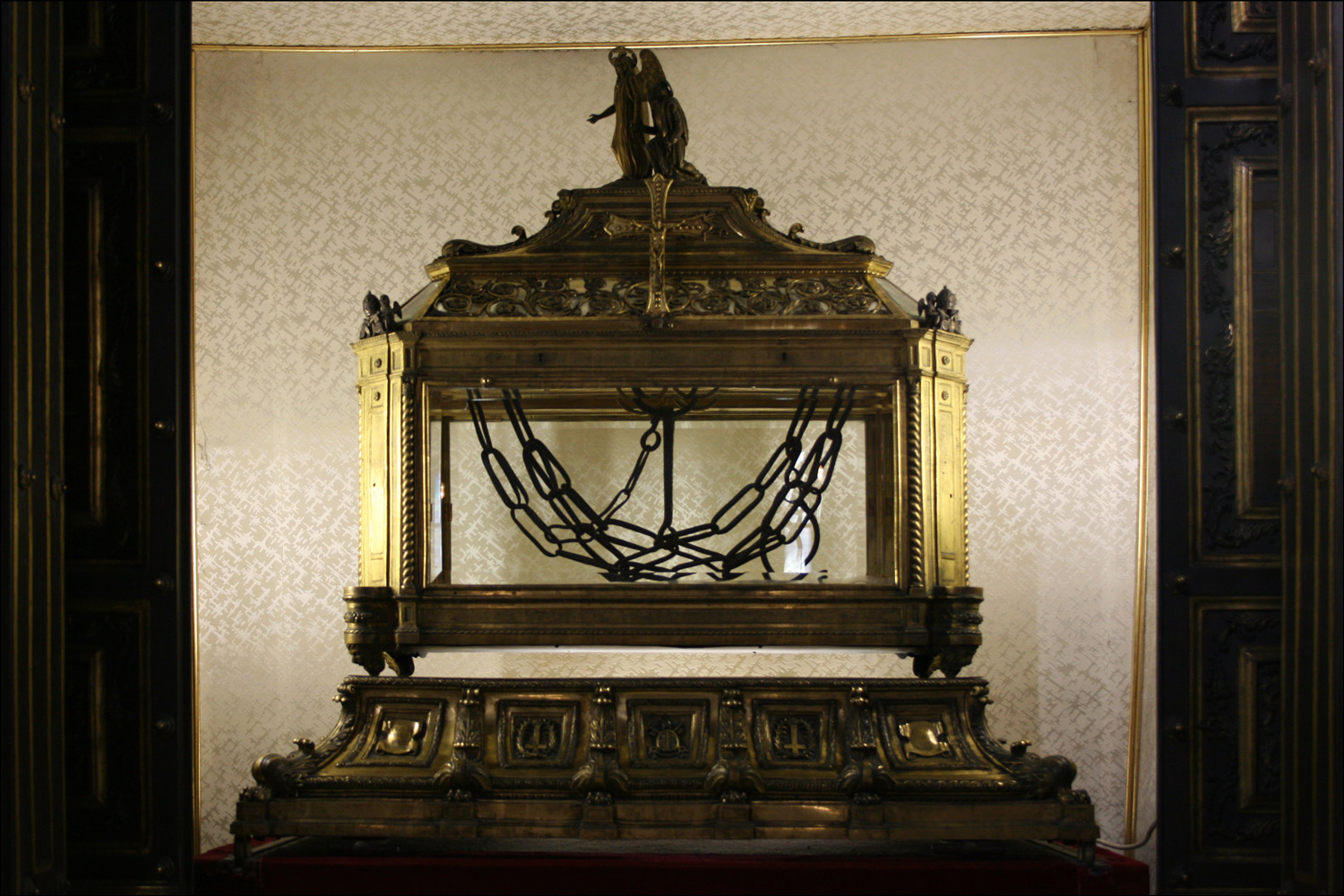 |
| source: stephendanko.com |
In the year of our Lord 439, in the reign of the Emperor Theodosius the younger, his wife went to Jerusalem in fulfilment of a vow, and there was gifted with many presents. Among other things, they gave her in especial an iron chain, adorned with gold and precious stones, which they affirmed to be the same wherewith the Apostle Peter had been bound by King Herod. Eudocia, with godly reverence, afterwards sent this chain to Rome, to her daughter Eudoxia, who brought it to the Pope, and the Pope in return showed to her another chain wherewith the same Apostle had been shackled under the Emperor Nero.
When then the Pope put together the Roman chain and that which had been brought from Jerusalem, it came to pass that they got so entangled the one with the other that they seemed no longer two but one chain. From this wonder these holy fetters began to receive such honour, that Eudoxia's Church of St Peter on the Esquiline Mount was dedicated under the name of St Peter in - Chains, and a Feast - Day instituted upon the first day of August in memory of it.
From that time forth the honour which before had used to be paid to the profane festivity of the Gentiles, (held in memory of the dedication of the temple of Mars, and of the birth of Claudius,) began to be turned to the Chains of Peter, whose very touch healed the sick, and drove out devils. Among other such cases there befell in the year of man's Redemption 969, that of a certain Count, a servant of the Emperor Otho, who was possessed by an unclean spirit, and tore himself with his own teeth. This man the Emperor ordered to be taken to Pope John, and as soon as he had touched the Count's neck with the hallowed chains, the foul spirit came out of him, and left him free. And thenceforward the reverence for these holy chains greatly increased in the City.
-From the second nocturne of Mattins for today's feast -
One of the first churches I visited on my first trip to Rome many years ago. The sight of these chains under the high altar moved me like few things have ever done. In fact, it was not until years later visiting the excavations below the papal altar in St. Peter's basilica that I was similarly moved by the antiquity and awfulness (in its original connotation) of the veneration down through the ages by the faithful for the Prince of the Apostles. Just one man's recollection!
ReplyDelete